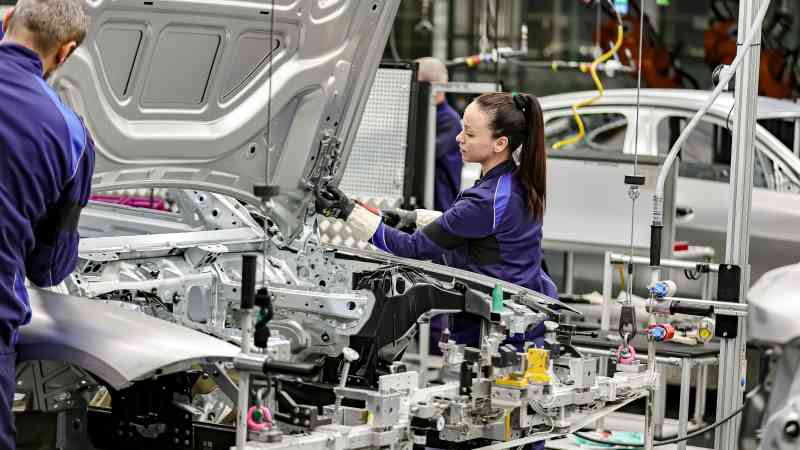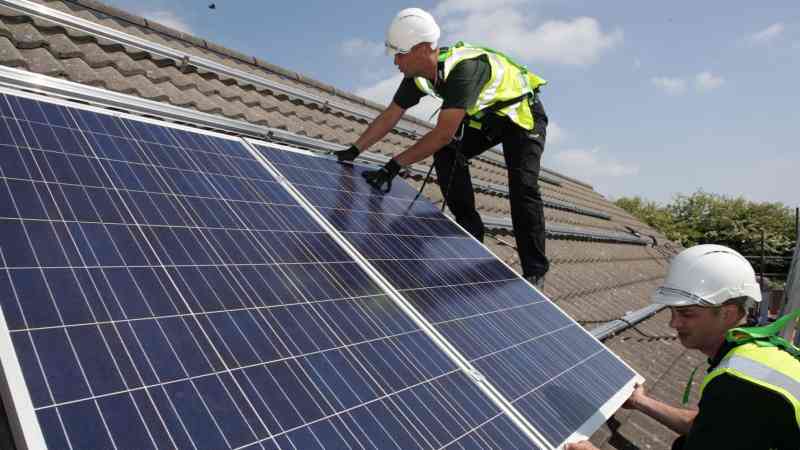Plunging electric car sales add to EU manufacturers’ gloom
The crisis enveloping Europe’s once-mighty vehicle manufacturing industry has caused sales at the continent’s three biggest carmakers to drop to a three-year low, felled by weak demand for electric vehicles.
Total new car sales in the EU declined by almost a fifth in August, led by double-digit falls in Germany, France and Italy, according to figures from the European Automobile Manufacturers’ Association (ACEA), the industry body.
Sales of battery electric cars collapsed 43.9 per cent to 92,627 and accounted for just a 14.4 per cent share of the EU car market, down from 21 per cent last year.
Stellantis, the owner of Peugeot, Citroën, Vauxhall and Fiat, was worst hit, with sales down 29.5 per cent in the month. Volkswagen Group suffered a 14.8 per cent drop, while Renault fell 13.9 per cent.
The ACEA warned that Europe’s electric car market is “now on a continual downward trajectory” and urged EU institutions to introduce relief measures before tough new carbon dioxide emissions targets for cars and vans come into effect in 2025.
The Brussels-based industry body said a catalogue of crucial conditions to boost production and the adoption of zero-emission vehicles were being missed. They included new charging and hydrogen refilling infrastructure; affordable green energy, purchase and tax incentives; and secure supplies of raw materials, hydrogen and batteries.
“Economic growth, consumer acceptance and trust in infrastructure have not developed sufficiently either,” it added.
Shrinking EV sales are partly because of diverging policies on green incentives across the EU. In addition, regulators have imposed hefty tariffs to try to keep out cheap Chinese EVs, potentially adding to purchase prices.
To try to revive the market, Germany agreed earlier this month on tax deductions of up to 40 per cent for companies on their EV sales.
Manufacturers have rolled back production targets in response to the stalling demand. Stellantis has suspended production of the fully electric Fiat 500 for four weeks, Toyota is understood to have cut back its EV sales target for 2026 by a third to 1 million and Volvo has scrapped a target of going all-electric by 2030 and expects to still be offering some hybrid models at that time.
Workers at an Audi factory in Brussels have stolen the keys to about 200 new cars at the plant in a show of anger at a potential plan to close the site.
The fall in sales in Europe echoes a decline in the UK, where new electric vehicles are on course to fall short of a government target of capturing 22 per cent of sales this year.
The data from Europe came as German media reported that VW is considering axing as many as 30,000 jobs, with up to five factories at risk of closure. VW denied the figure but said: “One thing is clear — Volkswagen has to reduce its costs at its German sites.”
Robert Habeck, the German economy minister, is planning to visit a VW plant in Emden on Friday in a show of support for the beleaguered company. He said: “VW is of central importance to Germany.”




Post Comment